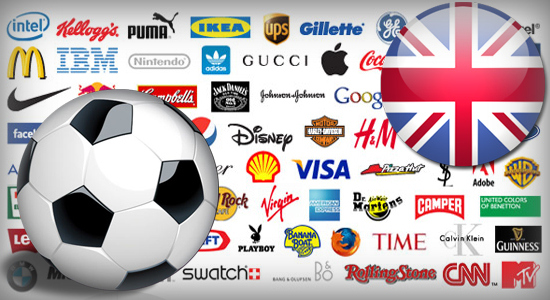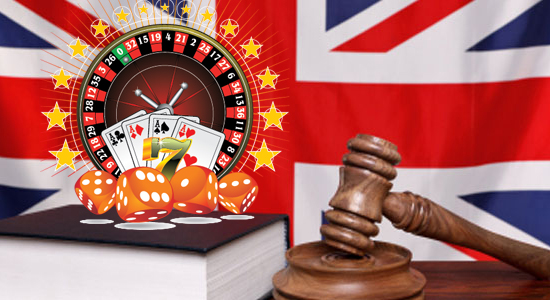New Rules for UK Sports Sponsorships
Sponsorships offered by betting companies without a UK license must come with a disclaimer.
After the court rejected the Gibraltar Betting and Gambling Association’s request to overturn new UK gambling laws, authorities are now going after British sports clubs and teams that closed sponsorship agreements with unlicensed betting companies.
The UK Gambling Commission is now asking that all adverts promoting operators without a British permit include a message saying their services are not available for UK players. Since the regulator did not include any clear instructions in its letter to sports governing bodies, clubs and teams are not sure how to approach the issue.
The new rules created a lot of confusion. Should logos on posters or flyers include an asterisk to a disclaimer? Do they need to mention this on players’ T-shirts too? For now, these questions remain unanswered.
PokerNews: UK Gambling Commission Warns Sports Teams About Deals with Unlicensed Operators
Nick Tofiluk, the director of the United Kingdom Gambling Commission (UKGC), sent out a letter to all sports governing bodies in the country, to warn them about the dangers of closing sponsorship deals with betting companies that did not apply for a UK license, as requested by the new regulations which came into force on November 1.
“You may be aware that all remote gambling operators selling into the British market, whether based here or abroad, will be required to hold a Gambling Commission license to transact with British based consumers,” Tofiluk wrote.
“We are aware that in some cases commercial partnership arrangements (which include sponsorship) are in place between sports clubs or bodies and remote gambling operators who do not hold a Commission license,” he continued.
In its letter, the regulatory body adopted a firm position on the matter, stating: “Those operators cannot in our view advertise their betting services without both making it clear in the product as advertised and in reality that betting is not available to those in Britain.”
As a consequence, such adverts will have to be accompanied by a disclaimer, and sports teams that don’t follow these rules risk being prosecuted.
“This letter seeks to draw to your attention the risks to sports clubs and bodies of maintaining such relationships”, the letter said, clarifying that those “risks” include committing an offence by breaking the law, as well as jeopardizing the state’s efforts to combat match fixing and betting corruption.
OutLaw.com: Regulator’s approach risks future of British sport sponsorship deals with offshore gambling providers, say experts
Law experts say the new guidance issued by the UK Gambling Commission could complicate things for sports clubs and teams looking to close shirt sponsorship deals with foreign-based betting companies.
Gambling law specialist Susan Biddle of Pinsent Masons, the firm behind Out-Law.com said she could “foresee practical problems if the requirement that the prohibition on play by British consumers has to be made ‘clear in the product as advertised’ means the prohibition has to be made clear as part of the advertisement or sponsorship itself.”
“For example, would players’ shirts, replica shirts and stadium boards which carry a sponsor’s logo each have to include an asterisk to a disclaimer somewhere else on the shirt or board?” she asked.
“Such a requirement would seem in practice to mean that sponsorship or other advertising by unlicensed offshore remote gambling operators will not be possible even if as a matter of practice they can achieve 100% successful blocking of British consumers,” the lawyer explained.
GamingZion: New British Gambling Laws Come into Force
Despite all the controversy, the new British gambling laws came into force on November 1, after the Gibraltar Betting and Gaming Association’s (GBGA) attempt to overturn the Government’s decision in court failed last month.
The new regulations and the upcoming 15% point on consumption tax coming this December have scared away some betting companies, who preferred to withdraw from the British market.
As of November 1, online gamblers can bet on sports scores using websites that have received approval for a continuation license. Remote operators have to apply for UK permits and pay an additional tax, regardless of where they’re located and even if they already hold a valid license in another jurisdiction.
“The Government announced that this law was introduced with the express intention of addressing concerns it said it had about the protection of consumers. The measures introduced through this Act are neither reasonable nor proportionate to achieving that goal and are likely to have adverse consequences for consumers,” the GBGA wrote in a statement, a few months ago.
The introduction of the Gambling (Licensing and Advertising) Act 2014 will be followed by an increase in taxes. Starting December 1, the Government is changing its rules for General Betting Duty (GBD), Pool Betting Duty (PBD), and Remote Gaming Duty (RGD). The changes will affect both offshore casino and sportsbook operators, as well as betting shops across the country.
According to the UK Government’s website: “Gambling activities are currently taxed on a ‘place of supply’ basis. This means that if you’re supplying gambling from the UK, you pay tax on all your gross gambling profits. Operators supplying UK customers from outside the UK pay no UK gambling taxes.”
Sponsorships offered by betting companies without a UK license must come with a disclaimer.
After the court rejected the Gibraltar Betting and Gambling Association’s request to overturn new UK gambling laws, authorities are now going after British sports clubs and teams that closed sponsorship agreements with unlicensed betting companies.
The UK Gambling Commission is now asking that all adverts promoting operators without a British permit include a message saying their services are not available for UK players. Since the regulator did not include any clear instructions in its letter to sports governing bodies, clubs and teams are not sure how to approach the issue.
The new rules created a lot of confusion. Should logos on posters or flyers include an asterisk to a disclaimer? Do they need to mention this on players’ T-shirts too? For now, these questions remain unanswered.
PokerNews: UK Gambling Commission Warns Sports Teams About Deals with Unlicensed Operators
Nick Tofiluk, the director of the United Kingdom Gambling Commission (UKGC), sent out a letter to all sports governing bodies in the country, to warn them about the dangers of closing sponsorship deals with betting companies that did not apply for a UK license, as requested by the new regulations which came into force on November 1.
“You may be aware that all remote gambling operators selling into the British market, whether based here or abroad, will be required to hold a Gambling Commission license to transact with British based consumers,” Tofiluk wrote.
“We are aware that in some cases commercial partnership arrangements (which include sponsorship) are in place between sports clubs or bodies and remote gambling operators who do not hold a Commission license,” he continued.
In its letter, the regulatory body adopted a firm position on the matter, stating: “Those operators cannot in our view advertise their betting services without both making it clear in the product as advertised and in reality that betting is not available to those in Britain.”
As a consequence, such adverts will have to be accompanied by a disclaimer, and sports teams that don’t follow these rules risk being prosecuted.
“This letter seeks to draw to your attention the risks to sports clubs and bodies of maintaining such relationships”, the letter said, clarifying that those “risks” include committing an offence by breaking the law, as well as jeopardizing the state’s efforts to combat match fixing and betting corruption.
OutLaw.com: Regulator’s approach risks future of British sport sponsorship deals with offshore gambling providers, say experts
Law experts say the new guidance issued by the UK Gambling Commission could complicate things for sports clubs and teams looking to close shirt sponsorship deals with foreign-based betting companies.
Gambling law specialist Susan Biddle of Pinsent Masons, the firm behind Out-Law.com said she could “foresee practical problems if the requirement that the prohibition on play by British consumers has to be made ‘clear in the product as advertised’ means the prohibition has to be made clear as part of the advertisement or sponsorship itself.”
“For example, would players’ shirts, replica shirts and stadium boards which carry a sponsor’s logo each have to include an asterisk to a disclaimer somewhere else on the shirt or board?” she asked.
“Such a requirement would seem in practice to mean that sponsorship or other advertising by unlicensed offshore remote gambling operators will not be possible even if as a matter of practice they can achieve 100% successful blocking of British consumers,” the lawyer explained.
GamingZion: New British Gambling Laws Come into Force
Despite all the controversy, the new British gambling laws came into force on November 1, after the Gibraltar Betting and Gaming Association’s (GBGA) attempt to overturn the Government’s decision in court failed last month.
The new regulations and the upcoming 15% point on consumption tax coming this December have scared away some betting companies, who preferred to withdraw from the British market.
As of November 1, online gamblers can bet on sports scores using websites that have received approval for a continuation license. Remote operators have to apply for UK permits and pay an additional tax, regardless of where they’re located and even if they already hold a valid license in another jurisdiction.
“The Government announced that this law was introduced with the express intention of addressing concerns it said it had about the protection of consumers. The measures introduced through this Act are neither reasonable nor proportionate to achieving that goal and are likely to have adverse consequences for consumers,” the GBGA wrote in a statement, a few months ago.
The introduction of the Gambling (Licensing and Advertising) Act 2014 will be followed by an increase in taxes. Starting December 1, the Government is changing its rules for General Betting Duty (GBD), Pool Betting Duty (PBD), and Remote Gaming Duty (RGD). The changes will affect both offshore casino and sportsbook operators, as well as betting shops across the country.
According to the UK Government’s website: “Gambling activities are currently taxed on a ‘place of supply’ basis. This means that if you’re supplying gambling from the UK, you pay tax on all your gross gambling profits. Operators supplying UK customers from outside the UK pay no UK gambling taxes.”
The week in pictures: October 7th -13th, 2014
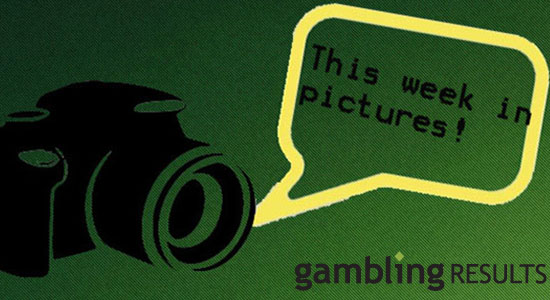
The week between October 7th and 13th was another busy week around the globe, therefore plenty of news. Good news first:
Formula 1 made a comeback in Russia after 100 years. The Nobel Prize for peace was awarded to Kailash Satyarthi and Malala Yousafzai and the Honorary Dame Grand Cross was awarded to Angelina Jolie by the Queen Elisabeth II of Great Britain.
Moving onto the bad news, another country leader made the news by simply ‘showing up’; Kim Jong Un has made his first public appearance in 40 days. Awful news came from the health sector: a patient diagnosed with Ebola died in the US and another one just got infected in Spain. In Africa, hundreds are still dying. People have died in India as well due to Cyclone Hudhud and in Hong Kong, protesters were still marching for democracy.
The gambling news were interesting as well. Let’s take a look at the pics, first!
1. Singapore failed at choosing words in the campaign against gambling but succeed in banning gambling activities.

2. The Trump name shall only be associated with ‘high standards of luxury’. It was decided in court that the famous surname will be removed from Trump Plaza and Trump Taj Mahal, now tapped out casinos.
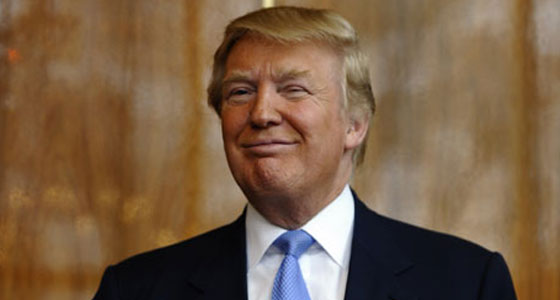
3. Phil Ivey’s case of edge-sorting and exploiting casino’s failures was declared cheating, in court. The poker player will not have access to his winnings.
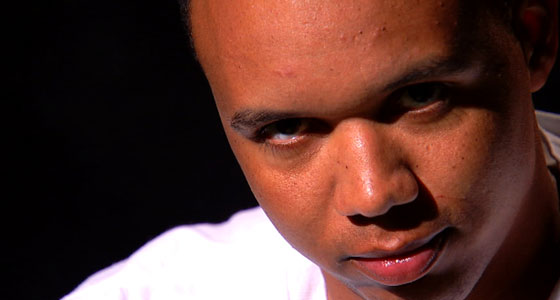
4. Floyd Mayweather showed everybody that he is not only a good sportsman, but also a good sports bettor. And a very, very rich man.

5. New and stricter gambling laws are expected in the Czech Republic. Foreign gambling operators are welcomed as well in a hope to boost tax revenues.

6. New gambling laws, new taxes in the UK as well. The Court granted ‘green light’ for implementing the anticipated legal amendments, despite Gibraltar Betting and Gaming Association objections.
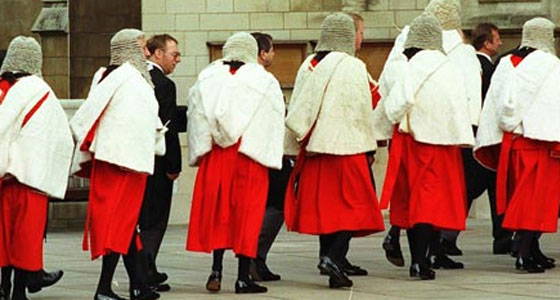
7. Ka-Ching! 350 people bought vintage gambling machines worth $2,381,700 at the Victorian Casino Antiques auction. The unique gambling items once belonged to the iconic Las Vegas Harrah’s Hotel and Casino.

That was it for the past seven days. If you want to stay informed with the latest gambling news, read the Gambling Results’ top stories section!



The week between October 7th and 13th was another busy week around the globe, therefore plenty of news. Good news first:
Formula 1 made a comeback in Russia after 100 years. The Nobel Prize for peace was awarded to Kailash Satyarthi and Malala Yousafzai and the Honorary Dame Grand Cross was awarded to Angelina Jolie by the Queen Elisabeth II of Great Britain.
Moving onto the bad news, another country leader made the news by simply ‘showing up’; Kim Jong Un has made his first public appearance in 40 days. Awful news came from the health sector: a patient diagnosed with Ebola died in the US and another one just got infected in Spain. In Africa, hundreds are still dying. People have died in India as well due to Cyclone Hudhud and in Hong Kong, protesters were still marching for democracy.
The gambling news were interesting as well. Let’s take a look at the pics, first!
1. Singapore failed at choosing words in the campaign against gambling but succeed in banning gambling activities.

2. The Trump name shall only be associated with ‘high standards of luxury’. It was decided in court that the famous surname will be removed from Trump Plaza and Trump Taj Mahal, now tapped out casinos.

3. Phil Ivey’s case of edge-sorting and exploiting casino’s failures was declared cheating, in court. The poker player will not have access to his winnings.

4. Floyd Mayweather showed everybody that he is not only a good sportsman, but also a good sports bettor. And a very, very rich man.

5. New and stricter gambling laws are expected in the Czech Republic. Foreign gambling operators are welcomed as well in a hope to boost tax revenues.

6. New gambling laws, new taxes in the UK as well. The Court granted ‘green light’ for implementing the anticipated legal amendments, despite Gibraltar Betting and Gaming Association objections.

7. Ka-Ching! 350 people bought vintage gambling machines worth $2,381,700 at the Victorian Casino Antiques auction. The unique gambling items once belonged to the iconic Las Vegas Harrah’s Hotel and Casino.

That was it for the past seven days. If you want to stay informed with the latest gambling news, read the Gambling Results’ top stories section!


Despite Bookmakers’ Objections, Judge Allows New UK Gambling Laws
The UK Government will move forward with its plan to tax remote gambling companies who cater to British players.
The court has given the British Government the green light to implement its new gambling laws. The decision comes after the Gibraltar Betting and Gaming Association challenged the government’s new licensing and taxation policies in court, hoping to receive approval to continue catering to British players remotely, without actually paying taxes in the UK.
For several years now, top gambling operators – including big names like William Hill, Ladbrokes or bet365 – have been running their online casinos and betting services from places like Gibraltar, Malta or Isle of Man. These offshore jurisdictions have much lower taxes than the UK, allowing gambling companies to pocket millions of pounds that would normally go to the British government.
The industry has been preparing for the big tax change, which is expected to cost it around GBP300 million a year, but the move has also caused share prices to drop. British bookmaker William Hill saw its shares fall 3.3%, while Ladbrokes shares dropped more than 4% following the court’s decision.
Reuters: RPT- Court clears Britain to take tighter control of online gambling
In order to tighten controls on the online betting industry, the British Government will require all internet gambling companies to obtain a license from the UK Gambling Commission before providing their services on the local market.
With the new license comes an additional 15% tax on online profits made from bets placed by UK-based customers, which is scheduled to come into force on December 1. As of March 2015, bookmakers will also pay 20 to 25% more on lucrative high stakes gambling machines. It is estimated that this tax increase will cost betting companies around GBP75 million a year.
As for the new gambling act, officials had initially set the deadline for October 1, but were forced to postpone the measures until November 1 after the Gibraltar Betting and Gaming Association (GBGA) challenged them in court, claiming they contravened European laws guaranteeing free movement of services.
Judge Nicholas Green dismissed the appeal on Friday, saying: “Parliament was clearly within its rights to act as it did.”
“We remain concerned the UK regulator will find it difficult to hold companies to account in jurisdictions outside of the EU where it has no legal powers and common legal framework or culture,” the GBGA wrote in a statement.
Critics argue that the new regulations will result in unlicensed operators offering better odds on sports scores, thus encouraging gamblers to turn to illegal websites, which offer no consumer protection.
GBGA: “Unlawful’” Gambling Law Poses “New Danger” for Consumers
Earlier in June, the Gibraltar Betting and Gaming Association (GBGA) raised a few issues regarding the Gambling (Licensing and Advertising) Act 2014, labeling it as “unlawful”, and claiming that it “threatens the safety of consumers online.”
The new regime will require the UK Gambling Commission to police the online industry worldwide, which will be very difficult. GBGA chief Peter Howitt believes that the new law, combined with planned tax changes, will cause local players to migrate to the unregulated market.
“This is bad for UK consumers, bad for the regulated industry, bad for Gibraltar and is in breach of European law, but fantastic news for operators who choose to avoid proper regulation,” he said in a statement.
“We know of no precedent where any regulator in any industry will be granted the role of licensing and regulating operators all over the world in this way, threatening to criminalize companies and people who fail to submit to its regime. This is plainly unworkable.”
In addition to being “unlawful” and “unworkable”, the new law is also “unnecessary”, the association said. Gibraltar has one of the world’s most effective regulatory regimes and would continue to be responsible for its gambling industry, but it would also have to share information with the UK regulator on a formal basis.
In a statement released by the GBGA, the association’s lawyers added: “All this Act achieves is a wholly unjustified, disproportionate and discriminatory interference with the right to free movement of services, a right enshrined in European Law.”
Gaming Intelligence: Pinnacle Sports to shut down UK operations
Curaçao-licensed betting operator Pinnacle Sports announced that it will withdraw from the UK market. The company decided to stop catering to British players after the Government announced it was introducing tighter regulations under the Gambling (Licensing and Advertising) Act 2014.
At the beginning of September, the company sent a notification to all its customers, announcing it will shut down its UK operations from September 30th. Apart from withdrawals, all account functions have been disabled starting September 30. The restriction applies to subscribers who have listed UK as their place of residence, in their account details.
“Amendments to the Gambling (Licensing and Advertising) Act come into force on October 1st, 2014 requiring all companies that advertise or provide gambling services to British residents to obtain a license from the British Gambling Commission,” the betting operator explained in a statement.
Pinnacle is just one of the many online gambling operators who chose to withdraw from the British market due to the 15% point of consumption tax. The list also includes SBOBet and 12BET, both licensed in Isle of Man, and Gibraltar-based Mansion casino.
The UK Government will move forward with its plan to tax remote gambling companies who cater to British players.
The court has given the British Government the green light to implement its new gambling laws. The decision comes after the Gibraltar Betting and Gaming Association challenged the government’s new licensing and taxation policies in court, hoping to receive approval to continue catering to British players remotely, without actually paying taxes in the UK.
For several years now, top gambling operators – including big names like William Hill, Ladbrokes or bet365 – have been running their online casinos and betting services from places like Gibraltar, Malta or Isle of Man. These offshore jurisdictions have much lower taxes than the UK, allowing gambling companies to pocket millions of pounds that would normally go to the British government.
The industry has been preparing for the big tax change, which is expected to cost it around GBP300 million a year, but the move has also caused share prices to drop. British bookmaker William Hill saw its shares fall 3.3%, while Ladbrokes shares dropped more than 4% following the court’s decision.
Reuters: RPT- Court clears Britain to take tighter control of online gambling
In order to tighten controls on the online betting industry, the British Government will require all internet gambling companies to obtain a license from the UK Gambling Commission before providing their services on the local market.
With the new license comes an additional 15% tax on online profits made from bets placed by UK-based customers, which is scheduled to come into force on December 1. As of March 2015, bookmakers will also pay 20 to 25% more on lucrative high stakes gambling machines. It is estimated that this tax increase will cost betting companies around GBP75 million a year.
As for the new gambling act, officials had initially set the deadline for October 1, but were forced to postpone the measures until November 1 after the Gibraltar Betting and Gaming Association (GBGA) challenged them in court, claiming they contravened European laws guaranteeing free movement of services.
Judge Nicholas Green dismissed the appeal on Friday, saying: “Parliament was clearly within its rights to act as it did.”
“We remain concerned the UK regulator will find it difficult to hold companies to account in jurisdictions outside of the EU where it has no legal powers and common legal framework or culture,” the GBGA wrote in a statement.
Critics argue that the new regulations will result in unlicensed operators offering better odds on sports scores, thus encouraging gamblers to turn to illegal websites, which offer no consumer protection.
GBGA: “Unlawful’” Gambling Law Poses “New Danger” for Consumers
Earlier in June, the Gibraltar Betting and Gaming Association (GBGA) raised a few issues regarding the Gambling (Licensing and Advertising) Act 2014, labeling it as “unlawful”, and claiming that it “threatens the safety of consumers online.”
The new regime will require the UK Gambling Commission to police the online industry worldwide, which will be very difficult. GBGA chief Peter Howitt believes that the new law, combined with planned tax changes, will cause local players to migrate to the unregulated market.
“This is bad for UK consumers, bad for the regulated industry, bad for Gibraltar and is in breach of European law, but fantastic news for operators who choose to avoid proper regulation,” he said in a statement.
“We know of no precedent where any regulator in any industry will be granted the role of licensing and regulating operators all over the world in this way, threatening to criminalize companies and people who fail to submit to its regime. This is plainly unworkable.”
In addition to being “unlawful” and “unworkable”, the new law is also “unnecessary”, the association said. Gibraltar has one of the world’s most effective regulatory regimes and would continue to be responsible for its gambling industry, but it would also have to share information with the UK regulator on a formal basis.
In a statement released by the GBGA, the association’s lawyers added: “All this Act achieves is a wholly unjustified, disproportionate and discriminatory interference with the right to free movement of services, a right enshrined in European Law.”
Gaming Intelligence: Pinnacle Sports to shut down UK operations
Curaçao-licensed betting operator Pinnacle Sports announced that it will withdraw from the UK market. The company decided to stop catering to British players after the Government announced it was introducing tighter regulations under the Gambling (Licensing and Advertising) Act 2014.
At the beginning of September, the company sent a notification to all its customers, announcing it will shut down its UK operations from September 30th. Apart from withdrawals, all account functions have been disabled starting September 30. The restriction applies to subscribers who have listed UK as their place of residence, in their account details.
“Amendments to the Gambling (Licensing and Advertising) Act come into force on October 1st, 2014 requiring all companies that advertise or provide gambling services to British residents to obtain a license from the British Gambling Commission,” the betting operator explained in a statement.
Pinnacle is just one of the many online gambling operators who chose to withdraw from the British market due to the 15% point of consumption tax. The list also includes SBOBet and 12BET, both licensed in Isle of Man, and Gibraltar-based Mansion casino.

